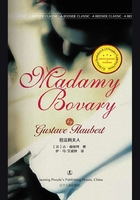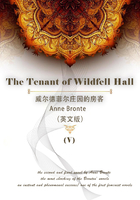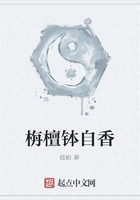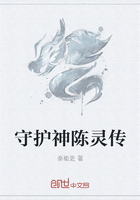Whenever Fine bought a garment or a pair of boots for them, he would sulk for days together. Ah! if he had only known, he would never had had that pack of brats, who compelled him to limit his smoking to four sous' worth of tobacco a day, and too frequently obliged him to eat stewed potatoes for dinner, a dish which he heartily detested.
Later on, however, as soon as Jean and Gervaise earned their first francs, he found some good in children after all. Lisa was no longer there. He lived upon the earnings of the two others without compunction, as he had already lived upon their mother. It was a well-planned speculation on his part. As soon as little Gervaise was eight years old, she went to a neighbouring dealer's to crack almonds; she there earned ten sous a day, which her father pocketed right royally, without even a question from Fine as to what became of the money. The young girl was next apprenticed to a laundress, and as soon as she received two francs a day for her work, the two francs strayed in a similar manner into Macquart's hands. Jean, who had learnt the trade of a carpenter, was likewise despoiled on pay-days, whenever Macquart succeeded in catching him before he had handed the money to his mother. If the money escaped Macquart, which sometimes happened, he became frightfully surly. He would glare at his wife and children for a whole week, picking a quarrel for nothing, although he was, as yet, ashamed to confess the real cause of his irritations. On the next pay-day, however, he would station himself on the watch, and as soon as he had succeeded in pilfering the youngster's earnings, he disappeared for days together.
Gervaise, beaten and brought up in the streets among all the lads of the neighbourhood, became a mother when she was fourteen years of age. The father of her child was not eighteen years old. He was a journeyman tanner named Lantier. At first Macquart was furious, but he calmed down somewhat when he learnt that Lantier's mother, a worthy woman, was willing to take charge of the child. He kept Gervaise, however; she was then already earning twenty-five sous a day, and he therefore avoided all question of marriage. Four years later she had a second child, which was likewise taken in by Lantier's mother. This time Macquart shut his eyes altogether. And when Fine timidly suggested that it was time to come to some understanding with the tanner, in order to end a state of things which made people chatter, he flatly declared that his daughter should not leave him, and that he would give her to her lover later on, "when he was worthy of her, and had enough money to furnish a home."
This was a fine time for Antoine Macquart. He dressed like a gentleman, in frock-coats and trousers of the finest cloth. Cleanly shaved, and almost fat, he was no longer the emaciated ragged vagabond who had been wont to frequent the taverns. He dropped into cafes, read the papers, and strolled on the Cours Sauvaire. He played the gentleman as long as he had any money in his pocket. At times of impecuniosity he remained at home, exasperated at being kept in his hovel and prevented from taking his customary cup of coffee. On such occasions he would reproach the whole human race with his poverty, making himself ill with rage and envy, until Fine, out of pity, would often give him the last silver coin in the house so that he might spend his evening at the cafe. This dear fellow was fiercely selfish. Gervaise, who brought home as much as sixty francs a month, wore only thin cotton frocks, while he had black satin waistcoats made for him by one of the best tailors in Plassans.
Jean, the big lad who earned three or four francs a day, was perhaps robbed even more impudently. The cafe where his father passed entire days was just opposite his master's workshop, and while he had plane or saw in hand he could see "Monsieur" Macquart on the other side of the way, sweetening his coffee or playing piquet with some petty annuitant. It was his money that the lazy old fellow was gambling away. He, Jean, never stepped inside a cafe, he never had so much as five sous to pay for a drink. Antoine treated him like a little girl, never leaving him a centime, and always demanding an exact account of the manner in which he had employed his time. If the unfortunate lad, led away by some of his mates, wasted a day somewhere in the country, on the banks of the Viorne, or on the slopes of Garrigues, his father would storm and raise his hand, and long bear him a grudge on account of the four francs less that he received at the end of the fortnight. He thus held his son in a state of dependence, sometimes even looking upon the sweethearts whom the young carpenter courted as his own. Several of Gervaise's friends used to come to the Macquarts' house, work-girls from sixteen to eighteen years of age, bold and boisterous girls who, on certain evenings, filled the room with youth and gaiety. Poor Jean, deprived of all pleasure, ever kept at home by the lack of money, looked at these girls with longing eyes; but the childish life which he was compelled to lead had implanted invincible shyness in him; in playing with his sister's friends, he was hardly bold enough to touch them with the tips of his fingers. Macquart used to shrug his shoulders with pity.
"What a simpleton!" he would mutter, with an air of ironical superiority.
And it was he who would kiss the girls, when his wife's back was turned. He carried his attentions even further with a little laundress whom Jean pursued rather more earnestly than the others. One fine evening he stole her almost from his arms. The old rogue prided himself on his gallantry.
There are some men who live upon their mistresses. Antoine Macquart lived on his wife and children with as much shamelessness and impudence. He did not feel the least compunction in pillaging the home and going out to enjoy himself when the house was bare. He still assumed a supercilious air, returning from the cafe only to rail against the poverty and wretchedness that awaited him at home. He found the dinner detestable, he called Gervaise a blockhead, and declared that Jean would never be a man. Immersed in his own selfish indulgence, he rubbed his hands whenever he had eaten the best piece in the dish; and then he smoked his pipe, puffing slowly, while the two poor children, overcome with fatigue, went to sleep with their heads resting on the table. Thus Macquart passed his days in lazy enjoyment. It seemed to him quite natural that he should be kept in idleness like a girl, to sprawl about on the benches of some tavern, or stroll in the cool of the day along the Cours or the Mail. At last he went so far as to relate his amorous escapades in the presence of his son, who listened with glistening eyes. The children never protested, accustomed as they were to see their mother humble herself before her husband.
Fine, that strapping woman who drubbed him soundly when they were both intoxicated, always trembled before him when she was sober, and allowed him to rule despotically at home. He robbed her in the night of the coppers which she had earned during the day at the market, but she never dared to protest, except by veiled rebukes. Sometimes, when he had squandered the week's money in advance, he accused her, poor thing, who worked herself to death, of being stupid and not knowing how to manage. Fine, as gentle as a lamb, replied, in her soft, clear voice, which contrasted so strangely with her big figure, that she was no longer twenty years old, and that money was becoming hard to earn. In order to console herself, she would buy a pint of aniseed, and drink little glassfuls of it with her daughter of an evening, after Antoine had gone back to the cafe. That was their dissipation. Jean went to bed, while the two women remained at the table, listening attentively in order to remove the bottle and glasses at the first sound.
When Macquart was late, they often became intoxicated by the many "nips" they thus thoughtlessly imbibed. Stupefied and gazing at each other with vague smiles, this mother and daughter would end by stuttering. Red patches appeared on Gervaise's cheeks; her delicate doll-like face assumed a look of maudlin beatitude. Nothing could be more heart-rending than to see this wretched, pale child, aglow with drink and wearing the idiotic smile of a confirmed sot about her moist lips. Fine, huddled up on her chair, became heavy and drowsy. They sometimes forgot to keep watch, or even lacked the strength to remove the bottle and glasses when Antoine's footsteps were heard on the stairs. On these occasions blows were freely exchanged among the Macquarts. Jean had to get up to separate his father and mother and make his sister go to bed, as otherwise she would have slept on the floor.
Every political party numbers its grotesques and its villains. Antoine Macquart, devoured by envy and hatred, and meditating revenge against society in general, welcomed the Republic as a happy era when he would be allowed to fill his pockets from his neighbour's cash-box, and even strangle the neighbour if the latter manifested any displeasure. His cafe life and all the newspaper articles he had read without understanding them had made him a terrible ranter who enunciated the strangest of political theories. It is necessary to have heard one of those malcontents who ill digest what they read, haranguing the company in some provincial taproom, in order to conceive the degree of hateful folly at which Macquart had arrived. As he talked a good deal, had seen active service, and was naturally regarded as a man of energy and spirit, he was much sought after and listened to by simpletons. Although he was not the chief of any party, he had succeeded in collecting round him a small group of working-men who took his jealous ravings for expressions of honest and conscientious indignation.
Directly after the Revolution of February '48, he persuaded himself that Plassans was his own, and, as he strolled along the streets, the jeering manner in which he regarded the little retail traders who stood terrified at their shop doors clearly signified: "Our day has come, my little lambs; we are going to lead you a fine dance!" He had grown insolent beyond belief; he acted the part of a victorious despot to such a degree that he ceased to pay for his drinks at the cafe, and the landlord, a simpleton who trembled whenever Antoine rolled his eyes, dared not present his bill. The number of cups of coffee he consumed during this period was incalculable; sometimes he invited his friends, and shouted for hours together that the people were dying of hunger, and that the rich ought to share their wealth with them. He himself would never have given a sou to a beggar.
That which chiefly converted him into a fierce Republican was the hope of at last being able to revenge himself on the Rougons, who had openly ranged themselves on the side of the reactionary party. Ah, what a triumph if he could only hold Pierre and Felicite at his mercy! Although the latter had not succeeded over well in business, they had at last become gentlefolks, while he, Macquart, had still remained a working-man. That exasperated him. Perhaps he was still more mortified because one of their sons was a barrister, another a doctor, and the third a clerk, while his son Jean merely worked at a carpenter's shop, and his daughter Gervaise at a washerwoman's. When he compared the Macquarts with the Rougons, he was still more ashamed to see his wife selling chestnuts in the market, and mending the greasy old straw-seated chairs of the neighbourhood in the evening. Pierre, after all, was but his brother, and had no more right than himself to live fatly on his income. Moreover, this brother was actually playing the gentleman with money stolen from him. Whenever Macquart touched upon this subject, he became fiercely enraged; he clamoured for hours together, incessantly repeating his old accusations, and never wearying of exclaiming: "If my brother was where he ought to be, I should be the moneyed man at the present time!"
And when anyone asked him where his brother ought to be, he would reply, "At the galleys!" in a formidable voice.
His hatred further increased when the Rougons had gathered the Conservatives round them, and thus acquired a certain influence in Plassans. The famous yellow drawing-room became, in his hare-brained chatter at the cafe, a cave of bandits, an assembly of villains who every evening swore on their daggers that they would murder the people. In order to incite the starvelings against Pierre, Macquart went so far as to circulate a report that the retired oil-dealer was not so poor as he pretended, but that he concealed his treasures through avarice and fear of robbery. His tactics thus tended to rouse the poor people by a repetition of absurdly ridiculous tales, which he often came to believe in himself. His personal animosity and his desire for revenge were ill concealed beneath his professions of patriotism; but he was heard so frequently, and he had such a loud voice, that no one would have dared to doubt the genuineness of his convictions.
At bottom, all the members of this family had the same brutish passions. Felicite, who clearly understood that Macquart's wild theories were simply the fruit of restrained rage and embittered envy, would much have liked to purchase his silence. Unfortunately, she was short of money, and did not dare to interest him in the dangerous game which her husband was playing. Antoine now injured them very much among the well-to-do people of the new town. It sufficed that he was a relation of theirs. Granoux and Roudier often scornfully reproached them for having such a man in their family. Felicite consequently asked herself with anguish how they could manage to cleanse themselves of such a stain.
It seemed to her monstrous and indecent that Monsieur Rougon should have a brother whose wife sold chestnuts, and who himself lived in crapulous idleness. She at last even trembled for the success of their secret intrigues, so long as Antoine seemingly took pleasure in compromising them. When the diatribes which he levelled at the yellow drawing-room were reported to her, she shuddered at the thought that he was capable of becoming desperate and ruining all their hopes by force of scandal.
Antoine knew what consternation his demeanour must cause the Rougons, and it was solely for the purpose of exhausting their patience that he from day to day affected fiercer opinions. At the cafe he frequented he used to speak of "my brother Pierre" in a voice which made everybody turn round; and if he happened to meet some reactionary from the yellow drawing-room in the street, he would mutter some low abuse which the worthy citizen, amazed at such audacity, would repeat to the Rougons in the evening, as though to make them responsible for his disagreeable encounter.
One day Granoux arrived in a state of fury.
"Really," he exclaimed, when scarcely across the threshold, "it's intolerable; one can't move a step without being insulted." Then, addressing Pierre, he added: "When one has a brother like yours, sir, one should rid society of him. I was just quietly walking past the Sub-Prefecture, when that rascal passed me muttering something in which I could clearly distinguish the words 'old rogue.'"
Felicite turned pale, and felt it necessary to apologise to Granoux, but he refused to accept any excuses, and threatened to leave altogether. The marquis, however, exerted himself to arrange matters.
"It is very strange," he said, "that the wretched fellow should have called you an old rogue. Are you sure that he intended the insult for you?"
Granoux was perplexed; he admitted at last, however, that Antoine might have muttered: "So you are again going to that old rogue's?"
At this Monsieur de Carnavant stroked his chin to conceal the smile which rose to his lips in spite of himself.
Then Rougon, with superb composure, replied: "I thought as much; the 'old rogue' was no doubt intended for me. I've very glad that this misunderstanding is now cleared up. Gentlemen, pray avoid the man in question, whom I formally repudiate."
Felicite, however, did not take matters so coolly; every fresh scandal caused by Macquart made her more and more uneasy; she would sometimes pass the whole night wondering what those gentlemen must think of the matter.
A few months before the Coup d'Etat, the Rougons received an anonymous letter, three pages of foul insults, in which they were warned that if their party should ever triumph, the scandalous story of Adelaide's amours would be published in some newspaper, together with an account of the robbery perpetrated by Pierre, when he had compelled his mother, driven out of her senses by debauchery, to sign a receipt for fifty thousand francs. This letter was a heavy blow for Rougon himself. Felicite could not refrain from reproaching her husband with his disreputable family; for the husband and wife never for a moment doubted that this letter was Antoine's work.
"We shall have to get rid of the blackguard at any price," said Pierre in a gloomy tone. "He's becoming too troublesome by far."
In the meantime, Macquart, resorting to his former tactics, looked round among his own relatives for accomplices who would join him against the Rougons. He had counted upon Aristide at first, on reading his terrible articles in the "Independant." But the young man, in spite of all his jealous rage, was not so foolish as to make common cause with such a fellow as his uncle. He never even minced matters with him, but invariably kept him at a distance, a circumstance which induced Antoine to regard him suspiciously. In the taverns, where Macquart reigned supreme, people went so far as to say the journalist was paid to provoke disturbances.
Baffled on this side, Macquart had no alternative but to sound his sister Ursule's children. Ursule had died in 1839, thus fulfilling her brother's evil prophecy. The nervous affection which she had inherited from her mother had turned into slow consumption, which gradually killed her. She left three children; a daughter, eighteen years of age, named Helene, who married a clerk, and two boys, the elder, Francois, a young man of twenty-three, and the younger, a sickly little fellow scarcely six years old, named Silvere. The death of his wife, whom he adored, proved a thunderbolt to Mouret. He dragged on his existence for another year, neglecting his business and losing all the money he had saved. Then, one morning, he was found hanging in a cupboard where Ursule's dresses were still suspended. His elder son, who had received a good commercial training, took a situation in the house of his uncle Rougon, where he replaced Aristide, who had just left.
Rougon, in spite of his profound hatred for the Macquarts, gladly welcomed this nephew, whom he knew to be industrious and sober. He was in want of a youth whom he could trust, and who would help him to retrieve his affairs. Moreover, during the time of Mouret's prosperity, he had learnt to esteem the young couple, who knew how to make money, and thus he had soon become reconciled with his sister. Perhaps he thought he was making Francois some compensation by taking him into his business; having robbed the mother, he would shield himself from remorse by giving employment to the son; even rogues make honest calculations sometimes. It was, however, a good thing for him. If the house of Rougon did not make a fortune at this time, it was certainly through no fault of that quiet, punctilious youth, Francois, who seemed born to pass his life behind a grocer's counter, between a jar of oil and a bundle of dried cod-fish. Although he physically resembled his mother, he inherited from his father a just if narrow mind, with an instinctive liking for a methodical life and the safe speculations of a small business.
Three months after his arrival, Pierre, pursuing his system of compensation, married him to his young daughter Marthe,[4] whom he did not know how to dispose of. The two young people fell in love with each other quite suddenly, in a few days. A peculiar circumstance had doubtless determined and enhanced their mutual affection. There was a remarkably close resemblance between them, suggesting that of brother and sister. Francois inherited, through Ursule, the face of his grandmother Adelaide. Marthe's case was still more curious; she was an equally exact portrait of Adelaide, although Pierre Rougon had none of his mother's features distinctly marked; the physical resemblance had, as it were, passed over Pierre, to reappear in his daughter. The similarity between husband and wife went, however, no further than their faces; if the worthy son of a steady matter-of-fact hatter was distinguishable in Francois, Marthe showed the nervousness and mental weakness of her grandmother. Perhaps it was this combination of physical resemblance and moral dissimilarity which threw the young people into each other's arms. From 1840 to 1844 they had three children. Francois remained in his uncle's employ until the latter retired. Pierre had desired to sell him the business, but the young man knew what small chance there was of making a fortune in trade at Plassans; so he declined the offer and repaired to Marseilles, where he established himself with his little savings.
Macquart soon had to abandon all hope of dragging this big industrious fellow into his campaign against the Rougons; whereupon, with all the spite of a lazybones, he regarded him as a cunning miser. He fancied, however, that he had discovered the accomplice he was seeking in Mouret's second son, a lad of fifteen years of age. Young Silvere had never even been to school at the time when Mouret was found hanging among his wife's skirts. His elder brother, not knowing what to do with him, took him also to his uncle's. The latter made a wry face on beholding the child; he had no intention of carrying his compensation so far as to feed a useless mouth. Thus Silvere, to whom Felicite also took a dislike, was growing up in tears, like an unfortunate little outcast, when his grandmother Adelaide, during one of the rare visits she paid the Rougons, took pity on him, and expressed a wish to have him with her. Pierre was delighted; he let the child go, without even suggesting an increase of the paltry allowance that he made Adelaide, and which henceforward would have to suffice for two.
Adelaide was then nearly seventy-five years of age. Grown old while leading a cloistered existence, she was no longer the lanky ardent girl who formerly ran to embrace the smuggler Macquart. She had stiffened and hardened in her hovel in the Impasse Saint-Mittre, that dismal silent hole where she lived entirely alone on potatoes and dry vegetables, and which she did not leave once in the course of a month. On seeing her pass, you might have thought her to be one of those delicately white old nuns with automatic gait, whom the cloister has kept apart from all the concerns of this world. Her pale face, always scrupulously girt with a white cap, looked like that of a dying woman; a vague, calm countenance it was, wearing an air of supreme indifference. Prolonged taciturnity had made her dumb; the darkness of her dwelling and the continual sight of the same objects had dulled her glance and given her eyes the limpidity of spring water. Absolute renunciation, slow physical and moral death, had little by little converted this crazy?amorosa?into a grave matron. When, as often happened, a blank stare came into her eyes, and she gazed before her without seeing anything, one could detect utter, internal void through those deep bright cavities.
Nothing now remained of her former voluptuous ardour but weariness of the flesh and a senile tremor of the hands. She had once loved like a she-wolf, but was now wasted, already sufficiently worn out for the grave. There had been strange workings of her nerves during her long years of chastity. A dissolute life would perhaps have wrecked her less than the slow hidden ravages of unsatisfied fever which had modified her organism.
Sometimes, even now, this moribund, pale old woman, who seemed to have no blood left in her, was seized with nervous fits like electric shocks, which galvanised her, and for an hour brought her atrocious intensity of life. She would lie on her bed rigid, with her eyes open; then hiccoughs would come upon her and she would writhe and struggle, acquiring the frightful strength of those hysterical madwomen whom one has to tie down in order to prevent them from breaking their heads against a wall. This return to former vigour, these sudden attacks, gave her a terrible shock. When she came to again, she would stagger about with such a scared, stupefied look, that the gossips of the Faubourg used to say: "She's been drinking, the crazy old thing!"
Little Silvere's childish smile was for her the last pale ray which brought some warmth to her frozen limbs. Weary of solitude, and frightened at the thought of dying alone in one of her fits, she had asked to have the child. With the little fellow running about near her, she felt secure against death. Without relinquishing her habits of taciturnity, or seeking to render her automatic movements more supple, she conceived inexpressible affection for him. Stiff and speechless, she would watch him playing for hours together, listening with delight to the intolerable noise with which he filled the old hovel. That tomb had resounded with uproar ever since Silvere had been running about it, bestriding broomsticks, knocking up against the doors, and shouting and crying. He brought Adelaide back to the world, as it were; she looked after him with the most adorable awkwardness; she who, in her youth, had neglected the duties of a mother, now felt the divine pleasures of maternity in washing his face, dressing him, and watching over his sickly life. It was a reawakening of love, a last soothing passion which heaven had granted to this woman who had been so ravaged by the want of some one to love; the touching agony of a heart that had lived amidst the most acute desires, and which was now dying full of love for a child.
She was already too far gone to pour forth the babble of good plump grandmothers; she adored the child in secret with the bashfulness of a young girl, without knowing how to fondle him. Sometimes she took him on her knees, and gazed at him for a long time with her pale eyes. When the little one, frightened by her mute white visage, began to cry, she seemed perplexed by what she had done, and quickly put him down upon the floor without even kissing him. Perhaps she recognised in him a faint resemblance to Macquart the poacher.
Silvere grew up, ever tete-a-tete with Adelaide. With childish cajolery he used to call her aunt Dide, a name which ultimately clung to the old woman; the word "aunt" employed in this way is simply a term of endearment in Provence. The child entertained singular affection, not unmixed with respectful terror, for his grandmother. During her nervous fits, when he was quite a little boy, he ran away from her, crying, terrified by her disfigured countenance; and he came back very timidly after the attack, ready to run away again, as though the old woman were disposed to beat him. Later on, however, when he was twelve years old, he would stop there bravely and watch in order that she might not hurt herself by falling off the bed. He stood for hours holding her tightly in his arms to subdue the rude shocks which distorted her. During intervals of calmness he would gaze with pity on her convulsed features and withered frame, over which her skirts lay like a shroud. These hidden dramas, which recurred every month, this old woman as rigid as a corpse, this child bent over her, silently watching for the return of consciousness, made up amidst the darkness of the hovel a strange picture of mournful horror and broken-hearted tenderness.















